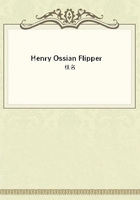
第28章
FIRST-CLASS CAMP.
IT is a common saying among cadets that "first-class camp is just like furlough." I rather think the assertion is an inheritance from former days and the cadets of those days, for the similarity at present between first-class camp and furlough is beyond our conception. There is none, or if any it is chimerical, depending entirely on circumstances. In the case of a small class it would be greater than in that of a large one. For instance, in "train drill" a certain number of men are required. No more are necessary. It would be inexpedient to employ a whole class when the class had more men in it than were required for the drill. In such cases the supernumeraries are instructed in something else, and alternate with those who attend train drill. In the case of a small class all attend the same drill daily, and that other duty or drill is reserved for autumn. Thus there is less drill in camp, and it becomes more like furlough when there is none at all.
Again, first-classmen enjoy more privileges than others, and for this reason their camp is more like furlough. If, however, there are numerous drills, the analogy will fail; for how can duty, drills, etc., coexist with privileges such as first-class privileges? Time which otherwise would be devoted to enjoyment of privileges is now consumed in drills.
Still there is much in it which makes first-class camp the most delightful part of a cadet's life.
There are more privileges, the duties are lighter and more attractive, and make it withal more enjoyable.
First, members of the class attend drill both as assistants and as students. They are detailed as chiefs of platoon, chiefs of section, chiefs of caissons, and as guidons at the light battery; as chiefs of pieces at the several foot batteries;attend themselves at the siege or sea-coast batteries, train drill, pontoon drill, engineering, ordnance, and astronomy, and they are also detailed as officers of the guard. These duties are generally not very difficult nor unpleasant to discharge. Second, from the nature of the privileges allowed first-classmen, they have more opportunity for pleasure than other cadets, and therefore avoid the rather serious consequences of their monotonous academic military life. A solitary monotonous life is rather apt to engender a dislike for mankind, and no high sense of honor or respect for women.
I deem these privileges of especial importance, as they enable one to avoid that danger and to cultivate the highest possible regard for women, and those virtues and other Christian attributes of which they are the better exponents. A soldier is particularly liable to fall into this sans-souci way of looking at life, and those to whom its pleasures, as well as its ills, are largely due. We are indebted to our fellows for every thing which affects our life as regards its happiness or unhappiness, and this latter misfortune will rarely be ours if we properly appreciate our friends and those who can and will make life less wretched. To shut one's self up in one's self is merely to trust, or rather to set up, one's own judgment as superior to the world's. That cannot be, nor can there be happiness in such false views of our organization as being of and for each other.
At this point of the course many of the first-class have attained their majority. They are men, and in one year more will be officers of the army. It becomes them, therefore, to lay aside the ordinary student's r?le, and assume a more dignified one, one more in conformity with their age and position. They leave all cadet r?les, etc., to the younger classes, and put on the proper dignity of men.